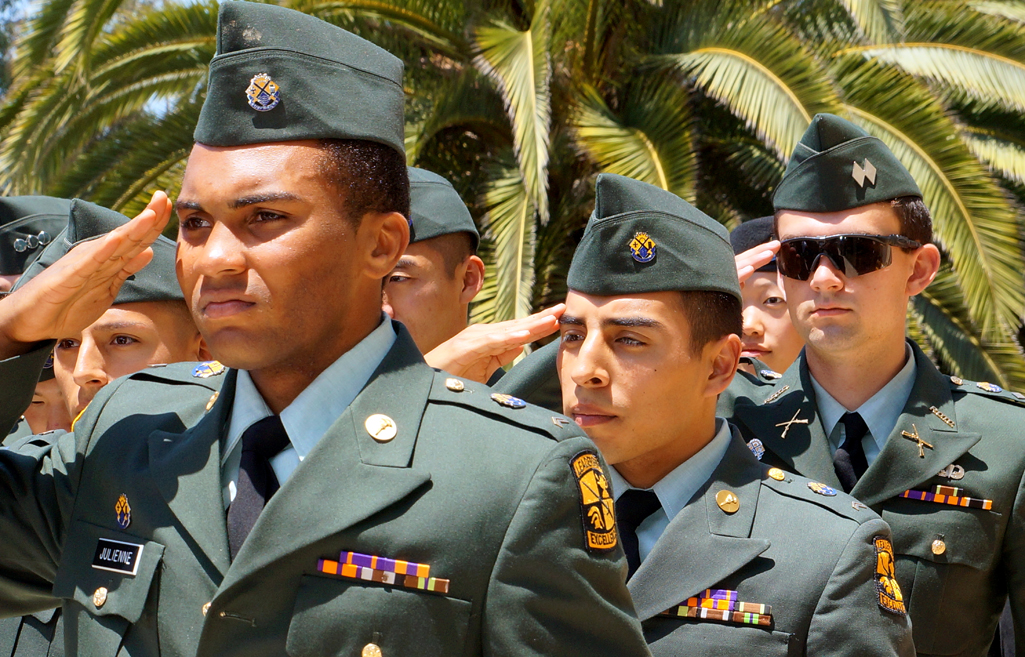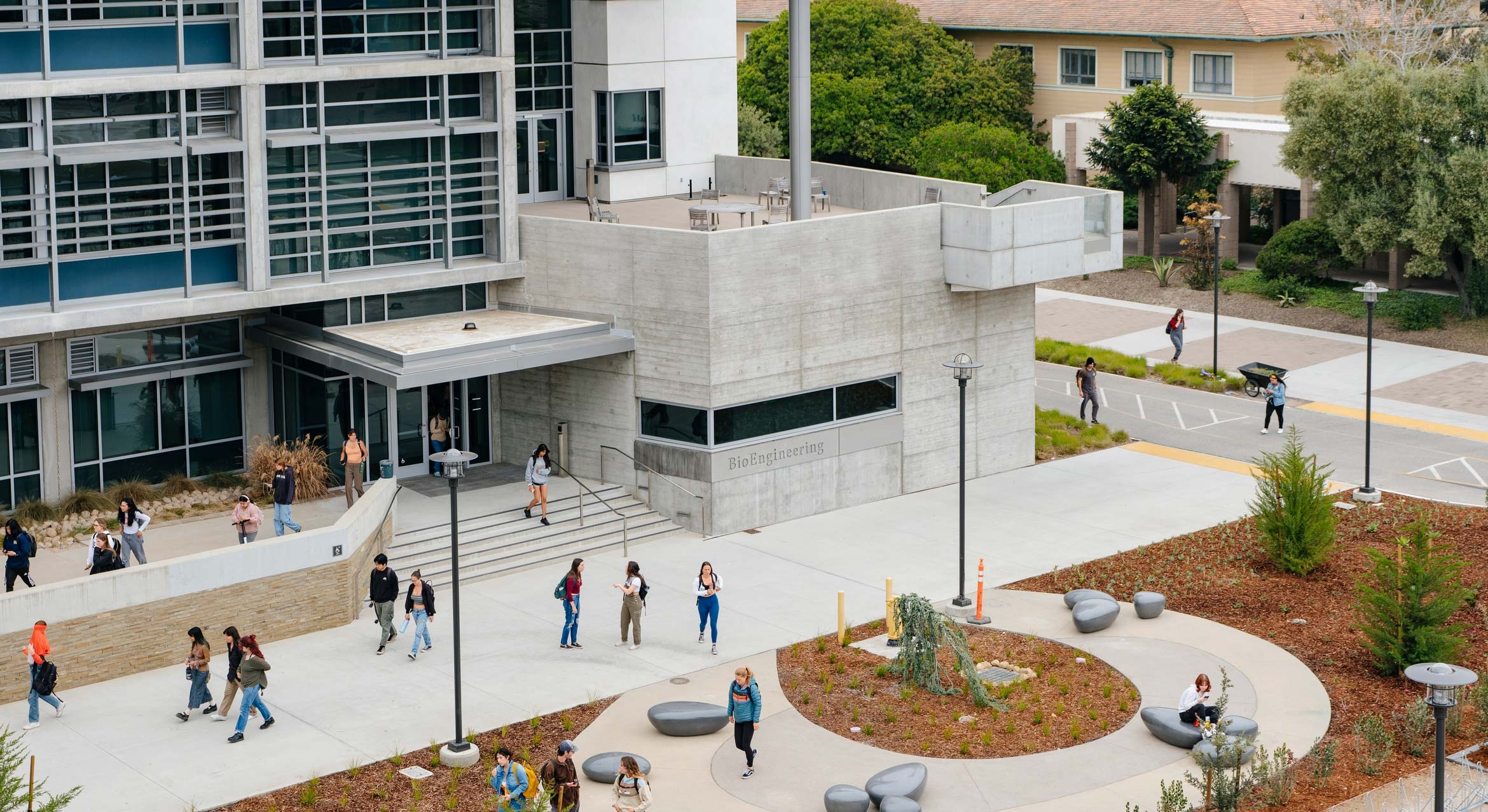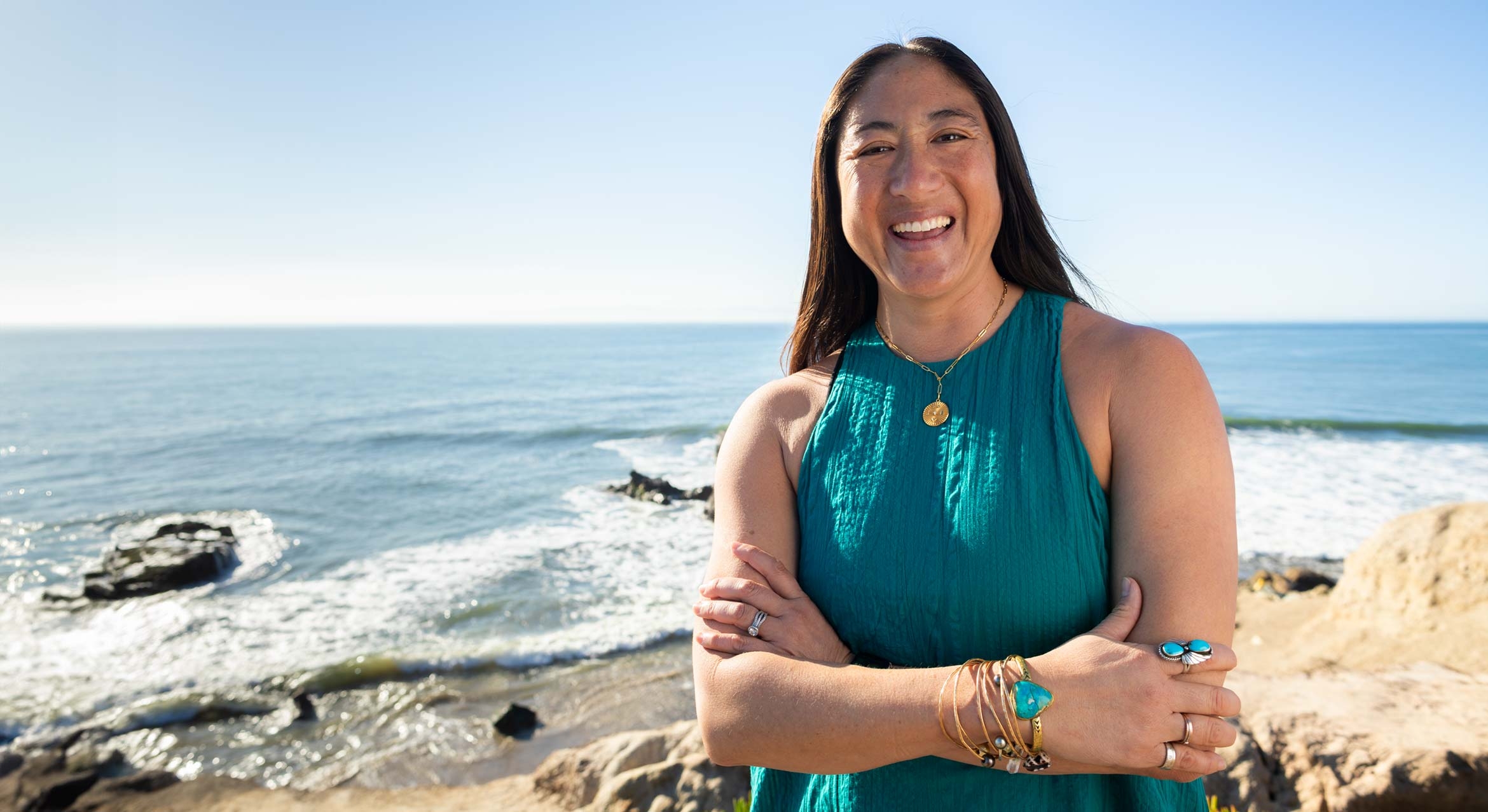
Michael Dzwoniarek knows the exact moment he made up his mind. It was a magazine cover that did it. Not long after 9/11, an intense Newsweek depiction of the Green Berets in Afghanistan resonated with the then-young Torrance native –– and stayed with him ever since.
"I still remember seeing that story and thinking, ‘That is awesome. I want to do that,'" Dzwoniarek recalls now. "Nothing has ever interested me the way this has. And I like the service aspect of doing something that's bigger than myself. So now I'm doing ‘that.'"
On Friday, Dzwoniarek commissioned as a second lieutenant in the U.S. Army, putting a capstone on the goal he's held in his mind since childhood. It's also the culmination of his four years in Surfrider Battalion, the Reserve Officer Training Corps (ROTC) program at UC Santa Barbara. Two days after pinning a gold bar to his uniform, Dzwoniarek picked up a bachelor's degree in sociology. And in three weeks, on July 7, he'll head to Fort Benning, Ga., to start his new job as an active-duty infantry officer.
"I'm excited and nervous –– change is always nerve-wracking –– but I'm stoked," Dzwoniarek said. "I joined to be a soldier. I've been training for this for four years."
The Army has been schooling cadets at UCSB for more than six decades. ROTC first came to the campus in 1947, when UC Santa Barbara College, as it was then called, was still operating from its original Riviera location downtown. In those post-World War II days, participation was required of all incoming freshman and sophomore male students. The compulsory component was retired in 1962; the program was opened to females in 1974.
Since graduating its first three cadets in 1949, the UCSB battalion has seen more than 1,000 students commission as second lieutenants in the U.S. Army, U.S. Army Reserve, or U.S. Army National Guard. In exchange for college scholarships, they contract to serve four years in active duty, or eight years in the Reserve or Guard.
It's a commitment none takes lightly.
Not Eric Chu, a first-generation American who believes he's "had it a whole lot better" in America than his parents did in their native Taiwan. Calling his determination to serve "my way of giving back," the electrical engineering grad commissioned on Friday, got his degree on Saturday, and will begin active duty in August.
Not Alexandria Schmidt, a fourth-year Japanese major who aspires to a career in military intelligence and responds to questions about women in combat this way: "If you're getting carried out of a burning building, do you care if it's a female or a male who's carrying you out?"
Not Nadia West, a second-year cadet who participated in Junior ROTC in high school. Attesting to some nerves, "because you don't really know where you'll end up, or what's going to happen," she nonetheless said her military aspirations are "the only thing I've ever been sure of."
Not Dayquan Julienne, a born-and-bred military kid who lived in Virginia, Tennessee, Hawaii, California, and Germany, twice, thanks to his father's Army career. His older brother just commissioned as an Army officer, and he's next, professing, "I always knew I would do this."
And not Cody Clark, a newly commissioned history grad. The son of a former enlisted infantryman, he was a "bored and tired" community college freshman when he heard about ROTC from a friend. Today he credits the program with giving him focus –– and a future.
"In high school my grade-point average was so bad, but I get here and I have a 3.5," said Clark, who transferred to UCSB from Santa Barbara City College. "ROTC is motivation. It pushes me to do better. I'm all in. I'm contracted for 11 years active duty right now."
Clark will serve at least long enough for the Army to fund his graduate school, one of the perks that comes with an extended commitment. Cadet Chu plans to do the same. But even as undergrads –– especially as undergrads, one could argue –– opportunities abound in ROTC.
An array of language, training, and service initiatives provide work, travel, and educational experience. In some cases they also come with school credit, and a paycheck. Project GO, for instance, offers cash and course credit incentives for intensive, in-country training in so-deemed "critical languages," including Arabic and Russian. Cultural Understanding Language Proficiency (CULP) is a summer immersion program that sends cadets into foreign countries for the humanitarian service and prolonged exposure to different cultures that the Army considers essential training for future officers.
Which is precisely the point. A vibrant education in military science, strategy, and tactics run second to the leadership training that is at ROTC's heart. By combining management theory with actual hands-on experience, Army ROTC aims to develop in its cadets self-discipline, physical stamina, and a multitude of other skills essential to commanding a unit. That the same qualities set them up for success in civilian life is an intentionally added bonus.
"This is a program of officership, but ultimately these are future leaders of America," said UCSB Professor of Military Science, Lt. Col. George Davis. "What I tell kids all the time is, whether you stay in for four years, or 24 years, you'll probably need another job at some point –– you can't become a millionaire in the Army. ROTC is about future leadership. It's about small business owners, government employees, law enforcement officers, and people who work for corporations. Some of the most sought-after people are military officers."
Once cadets commission and complete a subsequent mandatory officer's course, they're assigned a unit. For those on active duty, that means leading some 50 soldiers –– potentially into harm's way –– only months after living the collegiate life in sunny Santa Barbara. The student soldiers of Surfrider Battalion are, unilaterally, unabashedly grateful to be launching their military lives in an environment that has allowed them that experience. To a man, and a woman, they are engaged in extracurricular activities –– sports, fraternities, student government, volunteerism –– and, in some cases, holding down part-time jobs.
Do they get up early for physical training? Yes, three times per week. Do they take classes on military strategy and history? They do, by way of weekly lectures with Davis. They also have regular tactical sessions on the beach, and twice yearly weekend exercises at Camp San Luis Obispo –– a National Guard outpost –– engaging in real-life military scenarios.
But they also find time for just plain fun. ROTC insists on it.
"There's no yelling and screaming going on –– it's not basic training," said Davis. "We're a support mechanism in many ways. We're going to train them, mentor them, and help them all the way through, and make sure, from start to finish, that they're taken care of. There is some tough love, but the more we show them how the military works, and still give them the opportunity to be college students, the better they'll be as leaders."
The cadets are getting the message. In fact, said Nick Brischler, a sophomore double majoring in political science and history, "We probably learn more about responsibility because it's not strict and regimented. We've got temptations, and we've got priorities, and we have to manage our own time. That's real life. And ROTC at UCSB gives you that perspective."
It's a perspective that Dimitri Serrano describes as "work hard, play hard." With one year left until he commissions and earns his bachelor's degree in ecology and evolution, Serrano is embracing the ethos full bore. Open to any chance the Army gives him, he's completed the Ranger Challenge (a competition between ROTCs) and the Bataan Memorial Death March (a marathon commemorating the forced march of World War II prisoners of war). Last summer he went to Air Assault School; this summer he'll shadow a platoon leader for an up-close look at what it's like to run a unit.
"I don't know if this is ultimately what I want to do my whole life, but I'm excited not to know," said Serrano, who hopes to land in the Medical Service Corps or, like his grandfather, in the Military Police. "I have an open mind. I'm going to put the effort in and see what I get out, because this is a great opportunity and I know I'll get great opportunities from it –– things a lot of people probably won't be offered in their lifetimes. I want to do active duty service because I want to have an adventure. I'm prepared for what's to come. This is my commitment."
† Top image: Dayquan Julienne, front, is going into his third year at UCSB and in Surfrider Battalion, the university's Army ROTC program.
Credit: George Foulsham
†† Middle image: Cadet Eric Chu, flanked by his family, after being commissioned as a second lieutenant in the U.S. Army. He also graduated from UCSB this weekend, earning a degree in electrical engineering.
Credit: Rod Rolle
††† Bottom image: Surfrider Battalion is one of UCSB's oldest campus organizations, predating the school's incorporation into the UC system.
Credit: George Foulsham
Related Links



